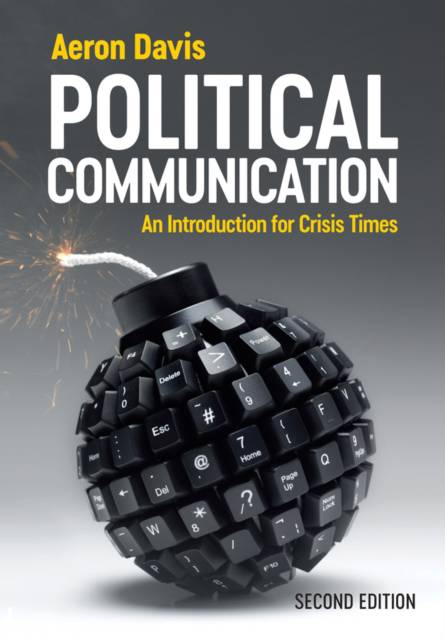
- Afhalen na 1 uur in een winkel met voorraad
- Gratis thuislevering in België vanaf € 30
- Ruim aanbod met 7 miljoen producten
- Afhalen na 1 uur in een winkel met voorraad
- Gratis thuislevering in België vanaf € 30
- Ruim aanbod met 7 miljoen producten
Zoeken
€ 94,95
+ 189 punten
Uitvoering
Omschrijving
We are living in a period of great uncertainty. The rise of extreme populists, economic shocks and rising international tensions is not only causing turmoil but is also a sign that many long-predicted tipping points in media and politics have now been reached. Such changes have worrying implications for democracies everywhere.
This second edition of Political Communication bridges old and new to map the political and cultural shifts and analyse what they mean for our ageing democracies. With new sections and revisions to all chapters, the book continues both to introduce and challenge the established literature. It revisits key questions such as: Why are polarized electorates no longer prepared to support established political parties? Why are large parts of the legacy media either dying or dismissed as 'fake news'? And why do some democratic leaders look more like dictators? In this fully updated edition, there is greater focus on digital developments, and it is enriched with new global comparisons and useful ancillary material.
Political Communication: An Introduction for Crisis Times will appeal to advanced students and scholars of political communication, as well as anyone trying to understand the precarious state of today's media and political landscape.
This second edition of Political Communication bridges old and new to map the political and cultural shifts and analyse what they mean for our ageing democracies. With new sections and revisions to all chapters, the book continues both to introduce and challenge the established literature. It revisits key questions such as: Why are polarized electorates no longer prepared to support established political parties? Why are large parts of the legacy media either dying or dismissed as 'fake news'? And why do some democratic leaders look more like dictators? In this fully updated edition, there is greater focus on digital developments, and it is enriched with new global comparisons and useful ancillary material.
Political Communication: An Introduction for Crisis Times will appeal to advanced students and scholars of political communication, as well as anyone trying to understand the precarious state of today's media and political landscape.
Specificaties
Betrokkenen
- Auteur(s):
- Uitgeverij:
Inhoud
- Aantal bladzijden:
- 228
- Taal:
- Engels
Eigenschappen
- Productcode (EAN):
- 9781509557042
- Verschijningsdatum:
- 20/02/2024
- Uitvoering:
- Hardcover
- Formaat:
- Genaaid
- Afmetingen:
- 171 mm x 246 mm
- Gewicht:
- 680 g

Alleen bij Standaard Boekhandel
+ 189 punten op je klantenkaart van Standaard Boekhandel
Beoordelingen
We publiceren alleen reviews die voldoen aan de voorwaarden voor reviews. Bekijk onze voorwaarden voor reviews.











